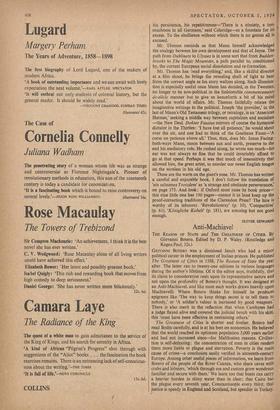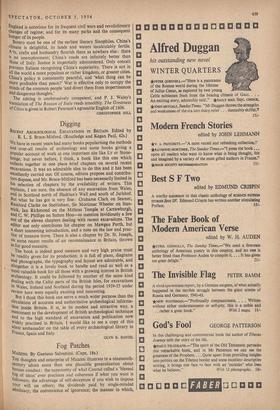Anti-Machiavel
THE REASON OF STATE and THE GREATNESS OF CITIES. BY GIOVANNI BOTERO was a dismissed Jesuit who had a minor political career in the employment of Italian princes. He published The Greatness of Cities in 1588, The Reason of State the year after. The latter ran to twenty-one editions in various languages during the author's lifetime. Of it the editor says, truthfully, that its claim to consideration rests upon its representative nature and not upon the profundity of Botero's thought. It was designed as an Anti-Machiavel, and like most such works draws heavily upon Machiavelli. Where Botero thinks for himself he produces epigrams like "The way to keep things secret is to tell them to nobody,' or 'A soldier's valour is increased by good weapons.' There is also merit in the reflection that when C'ambyses had a judge flayed alive and covered the judicial bench with his skin, this 'must have been effective in restraining others.'
The Greatness of Cities is shorter and livelier. Botero had read Bodin carefully, and is at his best on economics. He believed that the world reached its optimum population 3,000 years earlier and had not increased since—for Malthusian reasons. Civilisa- tion is self-defeating: the concentration of men in cities renders them more liable to plague and starvation. Poverty is the main cause of crime—a conclusion easily verified in sixteenth-century Europe. Among other useful pieces of information, we learn from Bolero of the people of the River Cuanza, who share caves with crabs and lobsters, 'which through use and custom grow wondrous familiar and secure with them.' We learn too that boats can carry a heavier burden in slimy water than in clear; that Cairo has the plague every seventh year, Constantinople every third; that justice is speedy in England and Scotland, but speedier in Turkey.
England is notorious for its frequent civil wars and revolutionary changes of regime; and for its many parks and the consequent hunger of its people.
Botero must be one of the earliest literary Sinophiles. China's climate is delightful, its lands and waters incalculably fertile. Arts, crafts and husbandry flourish there as nowhere else : there is no unemployment; China's roads are infinitely better than those of Italy. Justice is impartially administered. Only conceit prevents Italians recognising China's superiority. There is not in all the world a more populous or richer kingdom, or greater cities. China's policy is consistently peaceful, and 'what thing can be more profitable than peace?' War is effective only to occupy the minds of the common people 'and divert them from impertinences and dangerous thoughts.'
The editing is unobtrusively competent, and P. J. Waley's translation of The Reason of State reads smoothly. The Greatness of Cities is given in Robert Peterson's agreeable English of 1606.
CHRISTOPHER HILL



















































 Previous page
Previous page